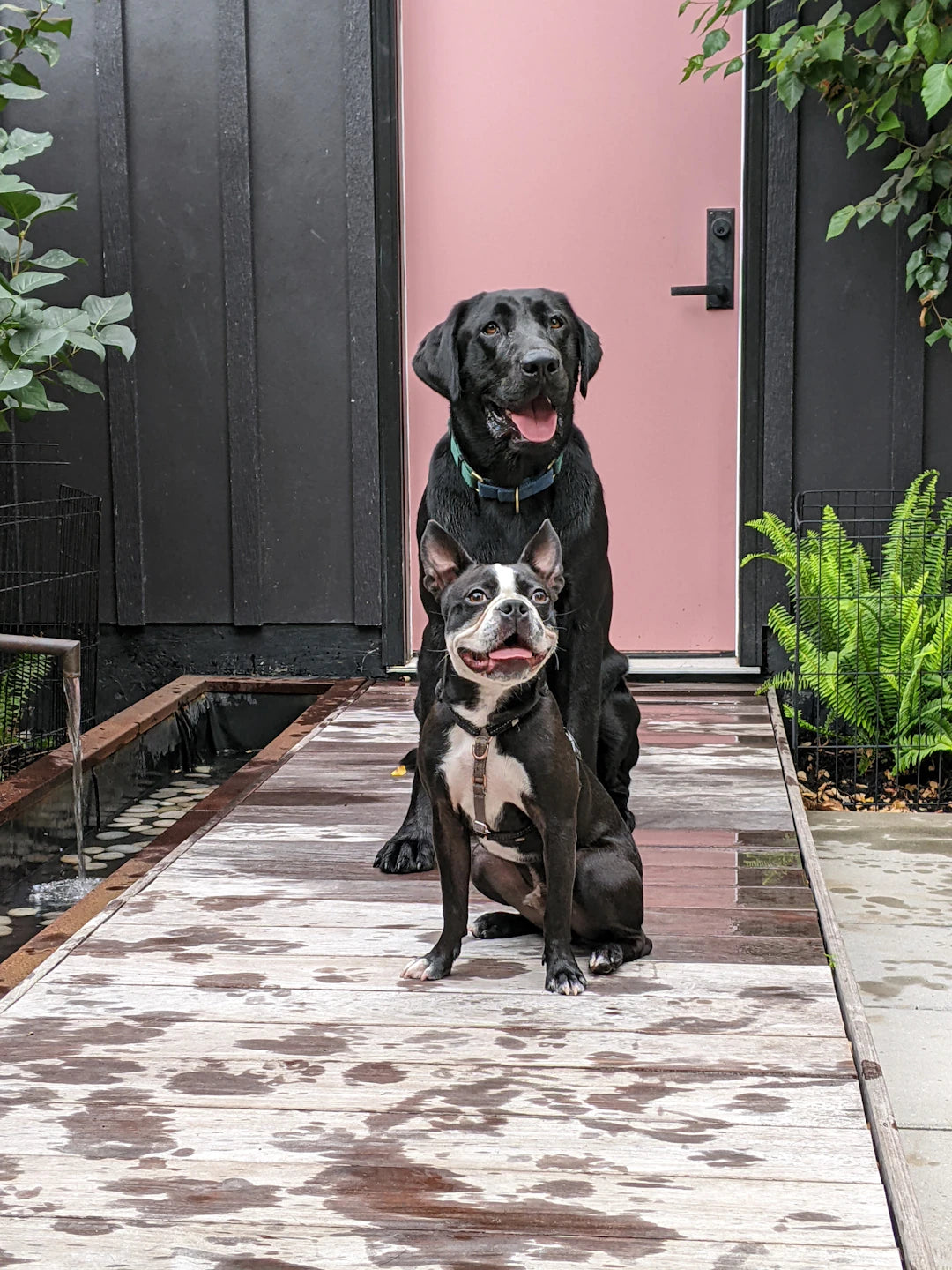
Socializing Your Pets: Unlocking Their True Potential
Share
Frequently Asked Questions
1. Why is socialization important for pets?
2. What are key components of pet socialization?
3. How can I effectively socialize my pet?
4. When is the best time to start socializing my pet?
5. What are the signs that my pet is uncomfortable during socialization?
Every pet owner desires a well-mannered and happy animal. Socialization is essential for achieving that blissful bond with your furry friends. It influences their behavior, mental health, and overall well-being. In this blog post, we’ll explore why socializing your pets matters and how you can effectively socialize them while enjoying the journey.
Understanding Pet Socialization
Socialization is the process of exposing your pets to various experiences, environments, people, and other animals. It’s crucial during the formative stages of an animal’s life, but it can be beneficial at any age. When we talk about socializing pets, it extends beyond just getting them to meet other animals; it encompasses teaching them how to react appropriately in different situations.
What Does Socialization Entail?
Socialization involves several components, including:
- Exposure to New Environments: Taking your pets for walks in different places helps them adapt to various settings.
- Interactions with People: Encouraging your pets to meet various individuals fosters friendliness.
- Meeting Other Pets: Allowing your pet to play with other animals teaches them important social cues.
The Importance of Socialization for Your Pets
Many pet owners wonder why socializing their pets is so important. The benefits extend not only to the pets themselves but also to the owners. Let’s dive deeper into the core reasons why socializing your pets matters.
Enhanced Behavior
Pets that are well-socialized tend to display better behavior. They are less likely to engage in undesirable actions such as barking excessively, showing aggression, or being fearful. With proper socialization, pets learn how to behave in different scenarios, which makes it easier for them to navigate their surroundings.
Less Anxiety and Fear
Socializing pets can significantly decrease anxiety and fear-related behaviors. A pet that has been exposed to various stimuli is less likely to react negatively to new experiences. This reduction in anxiety is especially crucial during unexpected events such as loud noises or new environments.
Building Confidence
Socialization helps pets build their confidence. As they interact with other animals and people, they learn to feel secure in their surroundings. This newfound confidence translates into better social skills and behavior.
Socialization Techniques You Can Use
Now that we understand why socialization is vital, let’s explore some effective techniques to socialize your pets. Consistency and patience are key as you integrate these methods into your pet’s routine.
Early Exposure
For new puppies and kittens, early exposure to different environments, people, and pets during their critical development stages is essential. Aim to introduce them to various sounds, sights, and sensations. You can take your pet on walks or even host playdates with other animals, ensuring to supervise their interactions.
Positive Reinforcement
Using positive reinforcement is an effective method for socializing pets. Reward your pets with treats or praises whenever they behave well during social interactions. This technique not only encourages good behavior but also creates a positive association with socialization.
Frequent Outings
Taking your pet on frequent outings will expose them to diverse environments. Whether it’s a trip to the park or a visit to pet-friendly cafes, these outings teach your pets that new experiences can be fun and harmless. It’s also a great way for pet owners to meet other enthusiasts, share tips, and build community.
The Role of Play in Socialization
Play is an integral aspect of socializing your pets. It not only helps them bond with you but also teaches them how to interact with other pets. Engage in fun activities such as fetch, tug-of-war, or agility exercises to improve your pet’s confidence and social skills.
Joining Pet Classes
Enrolling your pet in training or social classes opens a world of opportunities. These classes allow animals to interact with their peers in a controlled environment while learning basic commands. This structured format helps develop their social skills, making them less anxious in group settings later on.
Monitoring Your Pet’s Behavior
While socialization is essential, it’s crucial to monitor your pet’s behavior during these interactions. Look for signs of stress, fear, or aggression, and be ready to intervene if necessary. Each pet is unique, so some may take longer to adjust than others.
Understanding Pet Body Language
Learning to read your pet’s body language can greatly enhance your socialization efforts. Common signs that your pet may be uncomfortable include:
- Tail between legs
- Whining or whimpering
- Hiding or avoiding eye contact
If you notice these signs, take a step back and give your pet some space. Gradual introductions are key.
Socialization for Different Pets
Though we often think of dogs when discussing socialization, it’s equally important for other pets, including cats and even smaller animals. Each type of pet has different social needs and methods of socialization.
Socializing Cats
Cats are often seen as independent creatures, but they also benefit from socialization. Early socialization helps them become friendly and confident adults. Expose them to various people and situations, and encourage playtime with interactive toys. For instance, using a cat mug as a plaything can be entertaining when combined with treats inside!
Socializing Small Animals
Small animals such as rabbits or guinea pigs also require socialization. Spending time with them helps them feel secure. Allowing them to safely explore new spaces while supervised in their play areas helps them adapt. Be sure to handle them gently and consistently to foster a trusting relationship.
When to Start Socializing
The best time to start socializing your pets is during their critical development phase, typically around 3 to 14 weeks of age for puppies and kittens. However, it’s never too late to start socializing older pets. The key is to be patient and understanding throughout the process.
Things to Remember
While socializing your pets, keep these important points in mind:
- Always introduce new experiences slowly.
- Make use of positive reinforcement to encourage good behavior.
- Be patient; each pet has its pace.
- Monitor their comfort levels and take breaks as needed.
The Long-Term Benefits of a Well-Socialized Pet
Properly socialized pets not only result in happier animals but also happier owners. They are generally easier to manage, have fewer behavioral issues, and are more adaptable to new situations. Socializing leads to deeper bonds and a more fulfilling community for both your pets and you as a pet parent.
Enriching Your Pet's Life
Socializing doesn’t just improve behavior—it enriches their lives. Pets that are comfortable socializing are more likely to enjoy their time outdoors, whether on walks or during vacations. Having socialized pets means more adventures, new friends, and cherished memories for everyone involved!
Unlocking the Full Potential of Your Pet
Socialization is crucial for every dog, cat, and smaller companion animal. It’s a journey filled with challenges and rewards, but the effort is well worth it. By understanding and implementing effective socialization techniques, you can foster a happy, balanced, and well-adjusted pet. Remember that socialization is a lifelong process, not just a one-time task. The more you invest time in your pets' social skills, the more they'll flourish in their surroundings and relationships. So, let’s make those tails wag and those purrs resonate with joy through socialization!

